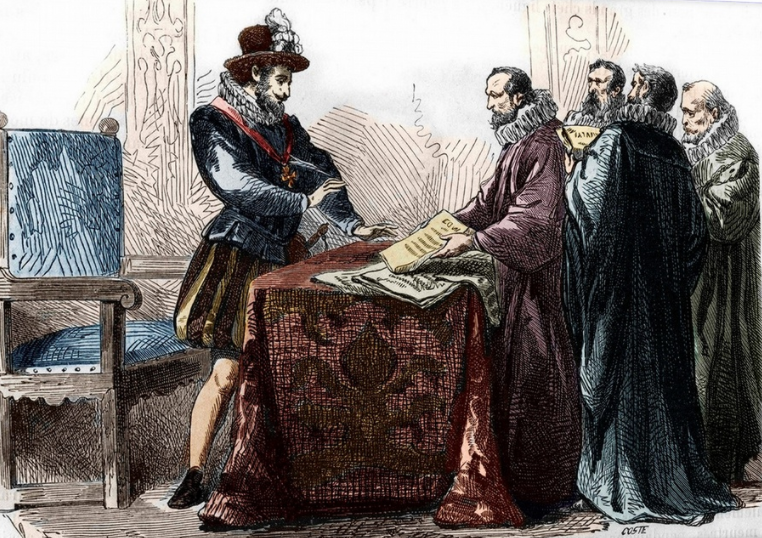(Receive our blog posts in your email by clicking here. If the author links in this post are broken, please visit our Free PDF Library and click on the author’s page directly.)
In 1812, on the occasion of the inauguration of Archibald Alexander as Professor of Didactic and Polemic Theology at Princeton Theological Seminary, Samuel Miller preached a memorable sermon titled The Duty of the Church to Take Measures for Providing An Able and Faithful Ministry in which he made an observation about the benefit of ministerial acquaintance with other languages besides English:
And here I will take occasion to remark, the great importance of a familiar acquaintance with the Latin language, to the Theologian. Although no part of scripture is written in that language, yet it is almost essentially necessary to pass through this vestibule, in order to arrive at the knowledge of any other ancient language; most valuable grammars and dictionaries being written in Latin: and almost all Theological works, not designed for the immediate use of the people, were composed in this language, prior to the middle of the last century, a very small portion of which have been translated into English. The course of theological study would indeed be very much circumscribed, if we were destitute of this key to unlock its rich treasures.
Samuel Davies had made a similar point about the importance of knowledge of languages in the previous century:
[Candidates] have acquir’d the Latin and Greek languages; studied Philosophy, particularly, Logic, Ontology, Pneumatology; and read sundry approven Systems of Theology, besides various Writings on particular important subjects; as, on Natural and Revealed Religion in Opposition to Atheism, Deism, &c. Most of them have learn’d Hebrew, and some of them read Physics and Ethics, or Natural and Moral Philosophy; besides what progress they made in sundry branches of Mathematics [The Impartial Trial, Impartially Tried, and Convicted of Partiality: in Remarks on Mr. Caldwell’s, alias Thornton’s Sermon Intituled, An Impartial Trial of the Spirit, &c. and the Preface of the Publisher in Virginia (Williamsburg, VA: W. Parks, 1748), 17, quoted in Joseph C. Harrod, Theology and Spirituality in the Works of Samuel Davies, p. 37].
James W.C. Pennington (the fugitive blacksmith slave who became a Presbyterian minister), though denied admittance to Yale Divinity School and only permitted to silently audit courses, famously taught himself Greek and Latin, and was described by a contemporary as an able German scholar as well, showing how motivated he was to learn languages to aid his work for the kingdom of Christ.
An able (educated) and faithful Presbyterian ministry has proved to be a multilingual blessing to the Church. Here at Log College Press we have noticed some of the fruits of these language skills. Many of the writers here have translated works from other languages into English, while others have written in languages besides English, including dictionaries and grammars for students. Some of the work, particularly by missionaries, involved pioneering cross-cultural communication. In today’s post, we will attempt to survey some of these linguistic efforts.
Translations
Archibald Alexander translated from Latin into English (and slightly abridged) the 1675 inaugural discourse of Herman Witsius on The Character of the Genuine Theologian;
James Waddel Alexander translated The Annunciation of Messiah to Our First Parents by Ernst Wilhelm Hengstenberg and a portion of Jules Michelet’s memoirs of Martin Luther, both from German into English;
Elias Boudinot translated the Gospel of Matthew into Cherokee;
Abraham Rezeau Brown translated the Memoirs of Augustus Hermann Francke and an article On the Song of Solomon from German into English;
Stephen Foreman translated the Gospel of Luke into Cherokee;
Stephen Return Riggs translated much of the Bible into the Dakota language, and John Bunyan’s The Pilgrim’s Progress, as well as other works;
Benjamin Breckrinridge Warfield translated Émile Doumergue’s 1909 discourse on Music in the Work of Calvin from French into English;
John Leighton Wilson translated the Gospel of Matthew into Grebo (1838);
Samuel Isett Woodbridge, Sr. translated The Golden-Horned Dragon King; or, The Emperor’s Visit to the Spirit World (1895), The Mystery of the White Snake: A Legend of Thunder Peak Tower (1896), and China’s Only Hope: An Appeal by Her Greatest Viceroy, Chang Chih-Tung, with the Sanction of the Present Emperor, Kwang Su (1900) from Chinese into English;
Julia McNair Wright translated Romain Kalbris: His Adventures By Sea and Shore by Hector Malot from French to English.
It is also especially worthy of note that one of the most significant translation works ever accomplished was George Musgrave Giger’s translation of Francis Turretin’s Institutes of Elenctic Theology. Although this particular work is not available at Log College Press, the author is represented here. Prior to Giger’s translation of these volumes, James Renwick Willson had translated Turretin on the Atonement of Christ (1817, 1859).
Also worthy of note are the discourses by Jean-Henri Merle d'Aubigné appended to Robert Baird’s memoir of the author. Included are translations by M.M. Backus and Thomas Smith Grimké (uncle of Francis James Grimké Fresh translations of most of these discourses from the French into English were later made by his son Charles Washington Baird.
Bilingual Dictionaries and Grammar Studies
James Curtis Hepburn published A Japanese and English Dictionary (1867);
Robert McGill Loughridge published an English and Muskokee Dictionary (1890);
William McCutchan Morrison published Mukanda Wa Kuluida Muibidi (1904); Nsumuinu Yakambabo Kudi Jisus (1904); and a Grammar and Dictionary of the Buluba-Lulua Language as Spoken in the Upper Kasai and Congo Basin (1906);
Charles Henry Parkhurst published Analysis of the Latin Verb: Illustrated by the Forms of the Sanskrit (1870);
Stephen Return Riggs published The Dakota First Reading Book (1839) and a Grammar and Dictionary of the Dakota Language (1851)
John Leighton Wilson published A Grammar of the Mpongwe Language, With Vocabularies (1847), A Grammar of the Bakěľe Language, With Vocabularies (1854), and Heads of Mpongwe Grammar; Containing Most of the Principles Needed by a Learner (1879);
Samuel Brown Wylie published An Introduction to the Knowledge of Greek Grammar (1838).
The Untranslated



